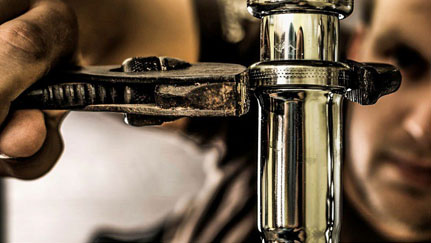Loading...
Prevent water from damaging your home

Excluding catastrophes, water causes more damage to American homes than fire, thunderstorms, and theft.1 About one in 55 insured U.S. homes has a water damage or freezing claim each year.2 The damage to your home can be severe—whether it’s an old water heater waiting to spill into the basement, a slow leak from a shower valve behind a wall, or an exposed pipe that may freeze and burst.
Nationwide Private Client’s risk solutions team recommends the following simple and low-cost steps to help prevent water damage:
- Leaks—if it holds water, it may fail:
- Inspect all appliances regularly for signs of age such as rust, cracking, and water stains.
- Check hoses for splits, cracks, or kinks.
- Verify all water connections are tight and dry.
- Install a catch basin under appliances like water heaters and washing machines.
- Work with a licensed plumber as needed.
Lower your risk—know how to prevent and remedy these situations:
- Locate the main water shut-off valve in your home and learn how to operate it.
- Be sure you know how to turn off fixtures with valves, such as toilets and faucets.
- If you plan to be away for an extended period of time, consider closing your home’s water main.
- During freezing conditions, cover exposed pipes and water spigots with insulation to prevent a pipe burst.
- Replace existing supply hoses to your toilets, faucets, ice maker, washing machine, and dishwasher with braided stainless steel connectors.3
- Consider installing a whole-house leak detection system. This device will not only sense problems, but it will also shut off the water automatically to help prevent significant damage to your home and personal property. In many states, you may qualify for discounts on your premium if this type of device is installed.
Get to it fast—if water damage strikes, follow these important steps:
- Locate and close the main water shut off as quickly as possible. If you cannot, call a plumber immediately.
- Dry the area as quickly as possible, including any standing water.
- Contact a water mitigation service company—they have the right equipment and experience to mitigate the amount of damage and prevent secondary damage from mold or rot.
- Contact your insurance agent or call us directly to report a claim. Be sure to save any receipts from incurred expenses to help process your claim.
If you have any questions, please contact your agent or Nationwide Private Client risk solutions professional. For more information on how you can help prevent losses from water damage, visit nationwide.com/solutionseries.
We offer this information to assist you in making decisions that can help mitigate your risk. While we cannot address every possible scenario or guarantee these tips will work for you, our goal is to support your efforts to protect you and your family.
[1] iii.org/facts_statistics/homeowners-and-renters-insurance.html
[2] Insurance Information Institute calculations, based on ISO®, a Verisk Analytics® business, data for homeowners insurance claims from 2010-2014
[3] disastersafety.org/plumbing/